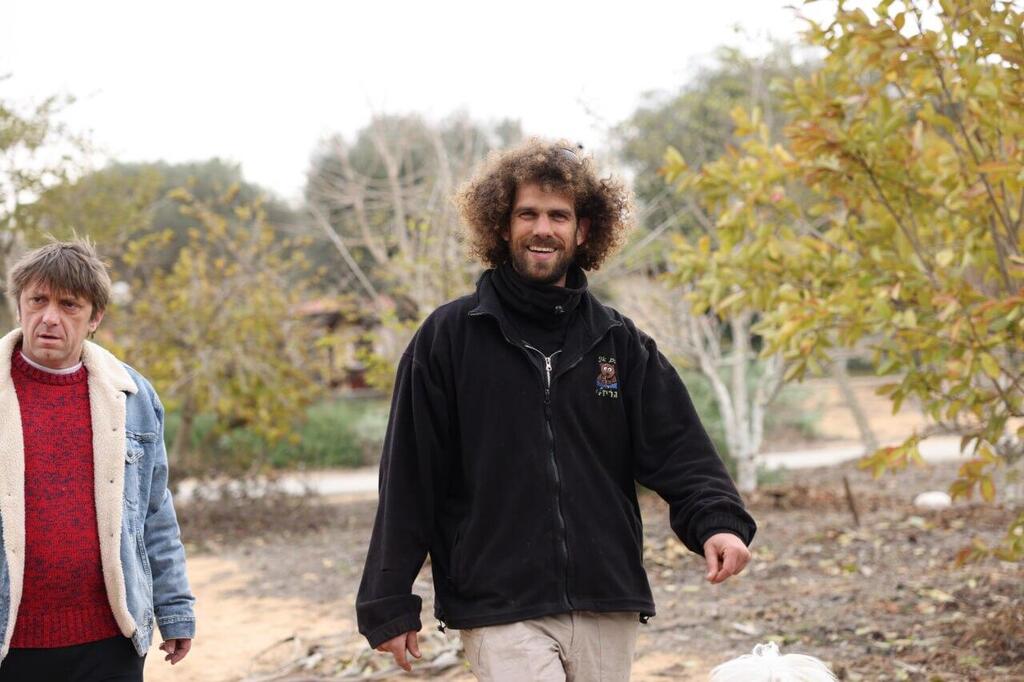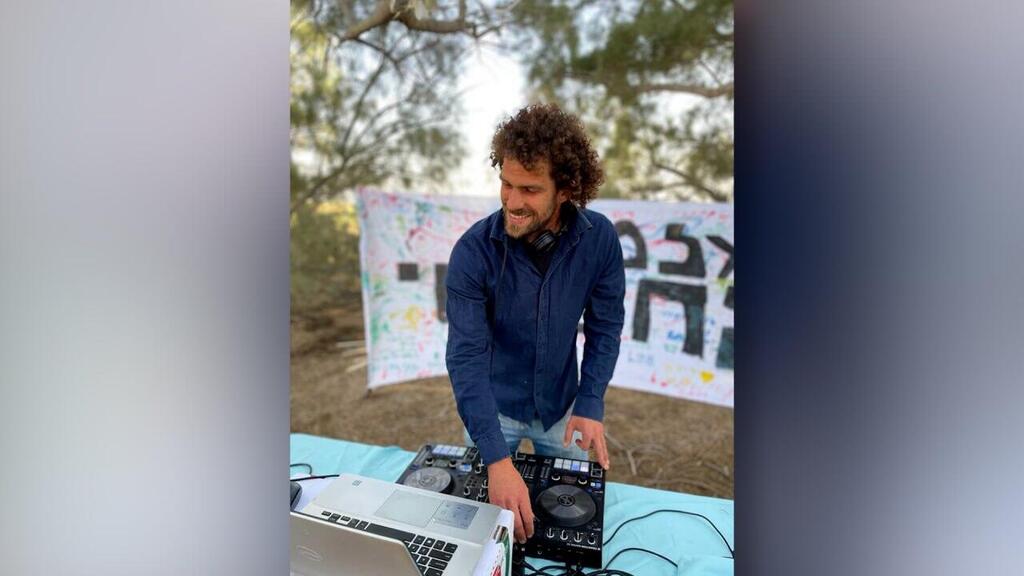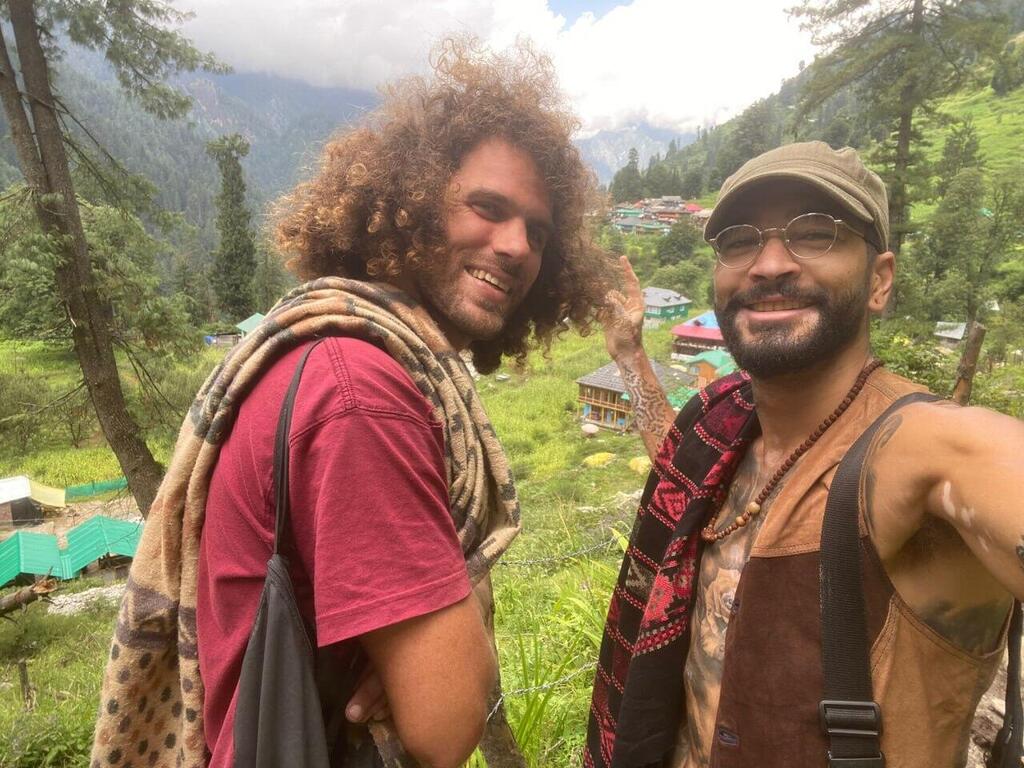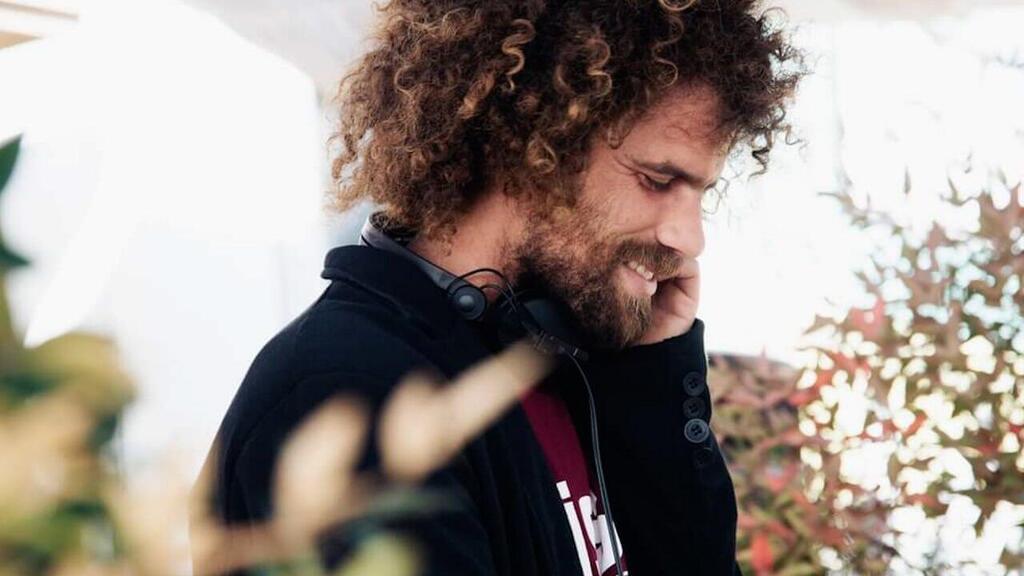Walking through Kibbutz Holit today, more than 100 days since the brutal terrorist attack on October 7, the remnants of lives abruptly ended are still visible. Blossoming gardens, books patiently waiting beside untouched beds, and an eerie silence that seeps through the houses where bullet holes serve as haunting reminders on their walls. The same atmosphere permeates the home of the late Hayim Katsman, which remains unnaturally quiet after his tragic murder. Those who knew him can attest that the walls of his home, adorned with symbols of peace and love, regularly reverberated with music that captivated the senses - from Palestinian hip-hop to Syrian electro-dabke, and even Lebanese techno.
Read more:
In his short 31 years, Hayim took on various roles - a Ph.D., a philosophy lecturer, a car mechanic and a farmer. However, he was also a DJ who skillfully played a wide range of Arabic music. On the evening before the Hamas massacre, he deejayed at a farewell party held just a 10-minute drive from the Nova music festival, and safely returned home. Tragically, a few hours later on that same Saturday morning, the residents of Kibbutz Holit, including Hayim, woke up to the nightmare that unfolded.
Nadav Gvir, a former member of Kibbutz Holit and a close friend of Katsman, reflects on the events of October 7. "On Friday, October 6, I debated whether to come and play with him at a party where he was going to deejay. I thought to myself that we had another gig later in the month, and since I live in the north, I chose to attend the second performance. It turns out that this was a very fateful decision. Unfortunately, we didn't make it to perform at the kibbutz," he says sadly.
Maor Mintz, another close friend of Katzman and a kibbutz member who wasn't in Holit that weekend, recalls the communication that took place on October 8. "WhatsApp messages started circulating in the kibbutz about hearing gunshots and that a grenade was thrown into one of the houses. We tried to understand what was happening, so I called Katsman, I think it was 7 a.m., and he answered quietly: 'I'm in the safe room, I hear gunshots. There are now shouts in Arabic in the neighborhood, I'm stuck at home without equipment and don't know what's happening, I'll talk to you.' When I hung up, I realized we couldn't contact them anymore, they were in a battle for their lives. That was the last time we spoke to him," Mintz said.
According to the accounts shared by his friends and relatives, it became evident that, while the terrorists were rampaging through the kibbutz, Katsman courageously ran from house to house, seeking to aid those in need and identify residents in danger. This led him to the home of Avital Aljam, his neighbor in the adjacent house, where they sought refuge together in a secure room.
"Avital and Hayim hid in the wardrobe within the safe room, but the terrorists managed to break into the house, shattering the door that led to the safe room, and eventually breaking through the door of the safe room itself," Mintz says. "I received the message that he was killed around 10 p.m. that night. We don't know the exact circumstances– whether he was shot or hit on the head. There is a bullet hole in the wall behind where he was standing. Avital was taken away from there, and she went on to recount her harrowing experience. I can't even begin to imagine what was going through his mind throughout that day, hearing the shouts and gunfire, and what thoughts occupied him in that moment. Everything he believed in shattered."
Katsman, as described by his friends and acquaintances, possessed a truly remarkable personality that was far from ordinary. This was evident not only in his diverse range of occupations - as a Ph.D., philosophy lecturer, mechanic, farmer and participant in a pre-military preparatory program - but also in his deep passion for music, particularly Arabic music, which he played as a DJ. It is worth noting that he was even fluent in the Arabic language.
Originally from Petach Tikva and raised in a religious Zionist environment, Katsman gradually distanced himself from religious practices over time, and his political beliefs started leaning toward the left. Despite the potentially divisive nature of political debates, he had a remarkable ability to engage in pleasant conversations with individuals of differing opinions, always maintaining a respectful and affable demeanor.
"Katsman was actually my most left-wing friend, and I loved him because he is a good man," says Achi Sitbon, his best friend who lives in Moshav Dekel, near Holit. "His entire life centered around peace, unity, love and the ability to build relationships with Arabs. He studied Arabic, spoke the language fluently, had a deep appreciation for Arabic music, and made it a point to promote it whenever possible. Even his doctoral studies focused on this subject."
Among the various roles Katsman took on, one stood out in particular: While pursuing his doctorate in Seattle, which explored the intersection of religion and nationalism in the Middle East, he became exposed to the world of Arab electronic music. In recent years, he developed his skills as a DJ and became known for his unique musical style within the scene. "He went by the stage name Dr. 3abass," Mintz adds. "He started deejaying at friends' parties and various events in the area, and he even embarked on a trip to India, which concluded a week before his tragic death."
Why did he like Arab music?
Katsman strongly believed that our lack of familiarity with the other side is what kept us ignorant, divided and in conflict. He had a conviction that, by playing tracks from the most vibrant parties in Ramallah during his DJ sets, he could foster connections between people, cultures and ultimately contribute to peace among individuals. This belief was deeply rooted in his understanding of the power of music.
Not only did music play a significant role, but books also held an inseparable place in his pursuit of peace. "We went through books and began packing them in boxes to bring them to his parents. 'You won't believe the kind of books Katsman has hidden under his pillow,' one of our friends burst out laughing. 'Hamas – From Religious Ideology to a Murderous Terror Organization' was under one pillow, and 'The Settlers' was under the other. That was a part of who he was."
The way he was killed and the things he believed in form a sort of irony.
"Yes, those were the arguments we constantly had, and even after he died, I still find myself engaging in imaginary debates with him in my mind," says Mintz. "Suddenly, I catch myself taking Katsman's side in different situations because his voice is now absent, and there is no one else to express those ideas. I don't know anyone else like him who had such strong belief in what they were doing. He exclusively played Arabic music because he believed it was a means to bring about peace. He volunteered to transport Palestinians from Gaza for medical check-ups in Israel, not only to provide assistance but also to have meaningful conversations and connect with new people. He also volunteered to support Palestinian farmers in the southern Hebron Hills. There were moments when we could hear the music playing from the other side of the fence, alongside the music coming from Katsman's house, and it was the same music."
According to Mintz, Katsman had faith in people and their capacity to coexist, despite the inability of the leadership on both sides to find solutions. "He believed that their government had issues with our government, and vice versa," Mintz explains. "But their farmers had no issues with our farmers, nor did their people have issues with ours. We all simply want to live and find a way to do so. However, on October 7, we discovered that perhaps they do have a problem with us."
Do you believe that after October 7, he would've said his dream died?
"The way I knew him? No way. Even that wouldn't have changed his seeing the good in people."
Two months after the murder in the kibbutz, Katsman's friends organized a special jam session in his memory at the Iszis brewery. This was a place where he regularly played and deejayed music with all the members of the kibbutz. It was also the location where he last performed the night before the Hamas massacre. To ensure the continuity of his music, his friends gathered all the musical instruments that were in his house and brought them to the brewery's stage, where he had always performed.
"Katsman left a piece of himself everywhere – in his music, in his collection of musical instruments, and in his DJ style that used to irritate us but we will now continue to play the same music," one of his friends reflects. "He is present in every aspect."
How did he want to be remembered?
"We had various discussions about what should happen after death," recalls Mintz. "Katsman would often say, 'Just throw me in the composter, I don't really care what happens to me.' One realization I gained from this experience is that we don't get to decide what happens to us after we die. In his brief life, Katsman was so vibrant that, even after his death, his spirit will continue to thrive here. The garden keeps flourishing, the plants keep growing, and his music will endure. We will keep having arguments with him and feel his absence."






